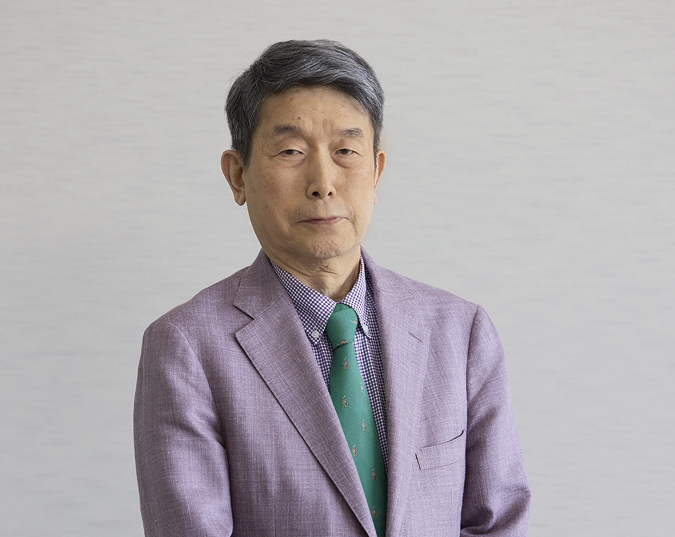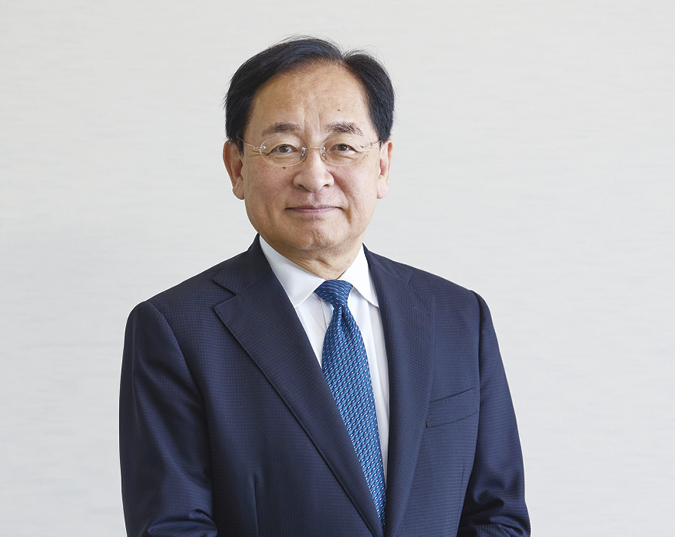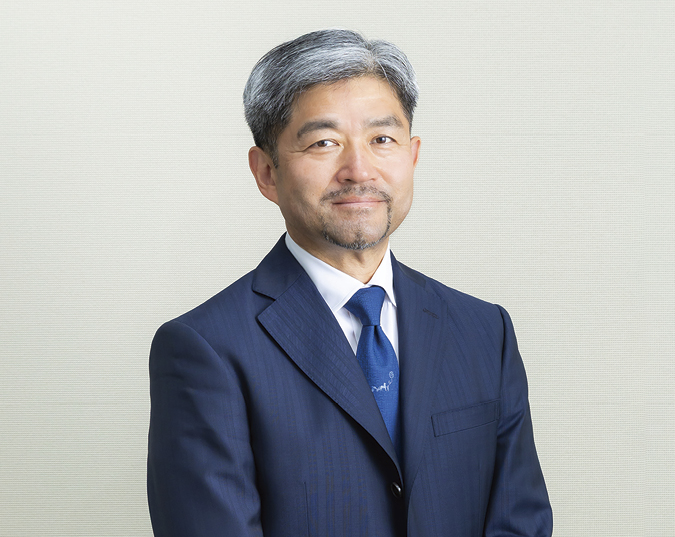Message from outside director
Message from the Chairman of the Board of Directors|Outside Director Takeo Kikkawa
Advice on Governance and Management Issues as Outside Directors

I believe that the functions of outside directors in stock companies can be broadly divided into supervision and advice. Both of these functions are basically working properly in our company. Currently, the increasing responsibility for energy supply and the transition to carbon neutrality are intertwined in a complex manner. In this situation, our biggest management challenge is to set an appropriate investment portfolio and then put it into action. In the process of taking on this challenge, our Outside Directors proactively speak out mainly on the direction of business transformation and risk management by leveraging their respective areas of expertise.
However, that does not mean our governance structure is without problems. Despite the global expansion of our business, our Directors and Audit & Supervisory Board Members are all Japanese. We lack diversity in terms of internationality. Information sharing between Directors and Audit & Supervisory Board Members is also insufficient. I believe there is room for improvement in these areas.
The biggest challenge facing our company is that we have a strong supply side approach but a weak market-in approach. Energy demand in Japan toward 2040 will increase for electric power, remain flat for gas and decrease for oil. Under such circumstances,we are lagging behind in pursuing business opportunities in the expanding electric power market. The success or failure of new energy businesses depends on whether or not there is an off-taker. We have two trump cards of ammonia and black pellets with coal-fired power plant operators taking on the role of off-takers. Nevertheless, we currently lack the resolve to lead the way in carbon neutrality for coal-fired power plant operators. Moreover, although we have experience and assets in relation to solar and geothermal power generation that other companies do not have, we have been unable to effectively incorporate renewable energy into our strategy for carbon neutrality. To solve these problems, I believe we need to promote a transition to a market-in approach for the electric power market.
Carbon neutrality does not mean reducing CO₂ emissions to zero, but rather balancing CO₂ emissions with capture and absorption to achieve net zero CO₂ emissions. Accelerating the pace of CCUS is essential to increasing CO₂ capture. Our company has great potential for CCUS. The use of fossil fuels is expected to continue in the future due to the increase in demand for electric power. We have sufficient capability to roll out our noble two-front strategy of leading this transition while fulfilling our responsibilities as an energy supplier. I look forward to seeing this capability demonstrated under the leadership of our new President & Representative Director Sakai.
Message from the Chairman of the Nomination and Compensation Advisory Committee|Outside Director Jun Suzuki
Proposals for the Appointment of a New Representative Director and President and Sustainable Human Capital Strategy from Diverse Outside Perspectives

I became an Outside Director in 2023. Since then, I have constantly thought about what would be the best proposal for the Board and how the Committee should be involved in succession, top management appointments, team composition and other areas with a consciousness of the change and appointment of a new Representative Director and President. There are many officers in the company at the Senior Executive Officer level or above with the qualifications to be able to become the Representative Director and President. The Committee discussed this issue from the fall of 2024 based on the required abilities and qualities while referring to data such as the 360-degree evaluations by an outside specialist company. The Committee reached a conclusion in January 2025, and the Board of Directors then made the decision on the new Representative Director and President in February.
The Committee placed emphasis on three perspectives when narrowing down the candidates. The first is well-balanced management capabilities. This means generating revenue in our core petroleum business while being able to make future-oriented investments to take on the challenge of transitioning to carbon neutrality. The second is inclusive leadership. This refers to supporting employees so that they can work with peace of mind in an uncertain environment and gain backing from stakeholders. The third is contribution to Japan’s energy policy. This is about putting into place a structure that allows the Company to contribute even more to Japan’s energy policy. We also discussed whether it would be good combination for the Representative Director and President to make decisions and operate our company while the Chairman, with his experience as President, would take on a position to lead Japan’s energy policy by strongly voicing opinions on policy matters.
The Company is currently promoting personnel nurturing with continuity over a longer span of time. The Committee has also begun to discuss what human capital should be placed in which positions with an eye on the composition of the team in the next and future generations under this new structure. As the fluidity of human resources continues to increase, presenting young and mid-level employees with well-thought-out career paths will not only lead to the development of internal human resources and increased motivation, but will also send a message to those outside the company who wish to work with us.
Human capital strategy is an extremely important element to raise the corporate value of the Company. The Nomination and Compensation Advisory Committee deals with matters from the personnel system that forms the basis of the human capital strategy to officer personnel and compensation issues that cannot be discussed directly at Board of Directors’ meetings. Outside Directors have various backgrounds and discuss issues from a wide range of perspectives based on their respective experiences and knowledge. They provide feedback to business executives, consult with the Board of Directors and create a cycle of discussion, proposals, decisions and monitoring. It is necessary to constantly review a company’s systems and mechanisms. In the future, I will continue to provide advice which I think is the best on executive personnel and compensation systems and mechanism, as well as executive and compensation proposals for Directors while also understanding the circumstances and thinking of business executives.
Message from an Outside Audit & Supervisory Board Member|Outside Audit & Supervisory Board Member Masahiko Tezuka

Assessment on the Current State of the Company’s Corporate Governance
Looking back on the year since I took up my position as Audit & Supervisory Board Member, I was very impressed with the constructive and lively discussions that took place between Outside Officers and business executives in meetings such as of the Board of Directors and the Audit & Supervisory Board. A number of things are needed for Outside Officers to fulfill their responsibilities: opportunities to obtain the necessary information must be secured, an environment where it is possible to freely speak out in meetings of the Board of Directors and the Audit & Supervisory Board must be in place, and the company must have a resolve to attempt to use the opinions of Outside Officers to improve management and Outside Officers must have the appropriate capabilities. The Company satisfies these elements to a high level. Accordingly, I can say that the Company’s corporate governance is functioning soundly from the perspective of whether or not Outside Officers are fulfilling their responsibilities.
Important Themes and Activities in Audits
The petroleum industry is one which requires extremely difficult management leadership to realize carbon neutrality. The Company also needs to produce results for new businesses, such as solid electrolytes for next-generation batteries, while maintaining the profitability of its fuel oil and other existing businesses. In recent years, a series of serious safety and compliance problems has occurred in the Idemitsu Group. These include a work-related accident at our Chiba complex, and inappropriate conduct in product testing at Toa Oil Co., Ltd. and Showa Yokkaichi Sekiyu CO.,LTD. Whether or not the Company is dealing with these issues and problems is an important theme in audits. I have also personally visited the Chiba complex, Toa Oil Co., Ltd. and Showa Yokkaichi Sekiyu Co., Ltd. I confirmed that those sites are dealing with the issues and problems appropriately.
Improvement in the Effectiveness of Audits by Engaging in Dialogue and Knowing Sites
The role of Audit & Supervisory Board Members is to be familiar with the policies, mechanisms and people in corporate management. They should then confirm that the company has established management mechanisms based on appropriate policies and that the appropriate people are appropriately operating those mechanisms. If the company is moving in the wrong direction, they need to strongly ask management to correct course. To that end, it is important to deepen dialogue with the Company’s management and employees and to personally understand sites. I will also accurately grasp the situation at sites through dialogue and on-site visits to ensure that management and employees are moving in the correct direction with shared awareness. In this way, I will enhance the effectiveness of audits and contribute to the sound growth of the Company.